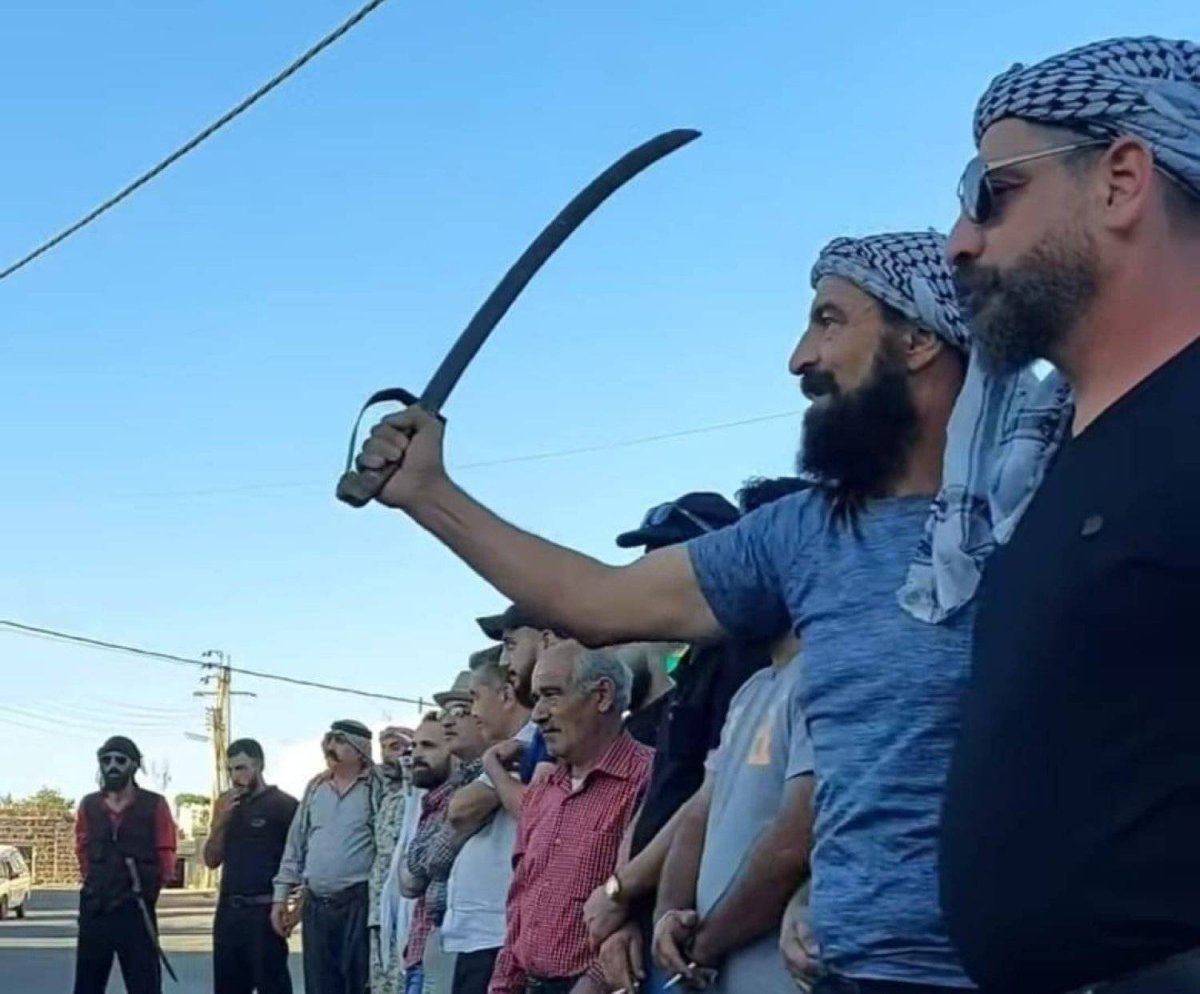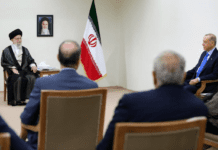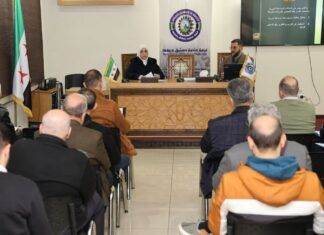
The Suwayda Governorate is experiencing heightened tensions as anti-election and anti-Assad protests continue to escalate. Over the past week, demonstrators have seized ballot boxes and intensified their efforts to boycott the Assad regime’s widely contested People’s Assembly elections, resulting in increased violence by Assad’s forces against opposition members.
On the evening of July 14, protesters in Al-Qurayya, south of Suwayda, seized ballot boxes designated for the regime parliament elections. According to local news networks, including Suwayda 24, protesters stormed the electoral center, broke ballot boxes, and set fire to ballot papers. Earlier that morning, demonstrators in Al-Mazraa, west of Suwayda, also stormed an electoral center, seizing electoral boxes and transporting them to an unknown location.
The widespread movement against the elections, deemed illegitimate and unrepresentative by locals, marks a significant campaign to prevent the elections from taking place in many villages and towns. This is the second time protesters in Suwayda have resorted to closing polling stations. In September 2023, demonstrators in Al-Geneina closed a local council election center and forced ballot officials to leave.
Adding to the turmoil, a shooting incident in Al-Karama Square the following day, July 15, left one person injured. Eyewitnesses reported that the altercation began with a dispute between a motorcycle rider and regime security forces, followed by intense gunfire from masked officers. The shooting, which appeared orchestrated, resulted in the injury of Jihad Zahreddine, who was hit after descending the stairs of the Real Estate Bank. Video recordings showed that the demonstrators were far from the police headquarters when the shooting occurred.
The regime’s justifications for the shooting have been conflicting, with some officials claiming it was a response to an attack on the police headquarters—a narrative contradicted by live recordings and eyewitness accounts. Observers suggest that the incident was an attempt by the regime to militarize the popular movement and provoke demonstrators into armed confrontations.
In a significant and tragic development, Merhej al-Jarmani (Abu Ghaith), the leader of the Jabal Brigade, was assassinated on Wednesday, July 17. The Men of Dignity Movement, a prominent local faction in Suwayda, condemned the assassination, calling it a dangerous turning point for the governorate. Al-Jarmani, a vocal critic of the Assad regime, was killed in his home with a single bullet to the head. His death has sparked allegations that the Assad regime’s security authorities were behind the assassination due to his active participation in the opposition movement.
Al-Jarmani had been a key figure in the protests, demanding the overthrow of the Assad regime and the implementation of UN Resolution 2254 for a peaceful transfer of power through democratic elections. He had also detained regime officers in response to the arrest of a young activist, releasing her through an exchange.
Adding to the complexity, journalist Rafiq Lutf, close to the regime’s security services, claimed that Al-Jarmani met Sheikh Hikmat Al-Hijri hours before his assassination. However, Al-Jarmani’s son, Ghaith, denied these allegations, asserting that his father had not met Al-Hijri for months and that the account used to spread this information was forged.
The assassination of Al-Jarmani has deepened the sense of unrest in Suwayda, with the Jabal Brigade and other local factions vowing to continue their resistance against Assad. The ongoing violence and opposition efforts highlight the fragile state of stability in the region and the growing discontent with Assad’s rule.








